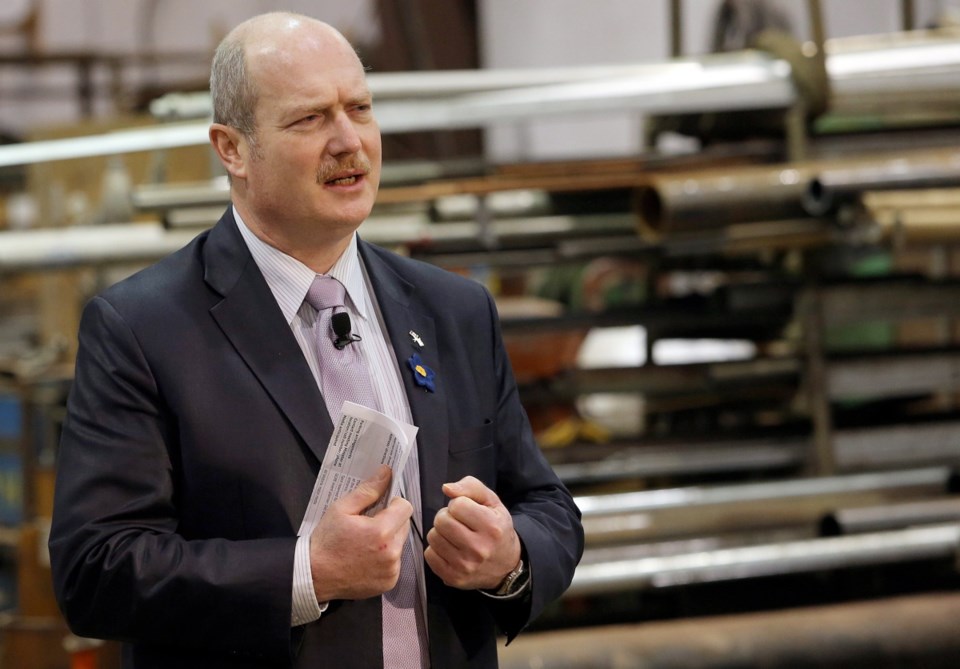A new idea has bubbled up in the legislature since the condo insurance crisis started boiling over. It’s the concept of self-insurance — providing a means for condo residents to manage their own insurance coverage.
They now rely on insurance companies who last year started jacking rates up by a shocking degree and raised deductibles even more, in the face of losses in that market.
Many strata councils have to share some of the blame. The losses stem mostly from constant water-damage claims, 11,000 in the peak year of 2018.
Many of them arise from lax strata boards adopting a habit of relying on insurance rather than maintaining properties properly.
The NDP government has introduced legislation in response to the skyrocketing premium and deductible increases. But the measures simply won’t make much difference to thousands of residents who this year are paying several times more than they did last year, for far less coverage.
The bill was introduced simply because the government had to do something. The crisis is so acute — and the effects are going to be so pervasive — that some kind of action had to be started. So officials put together a few marginal changes to buy some time until there’s a better idea.
There’s already a potential one at hand that needs a close look. A handful of readers suggested self-insurance to me during earlier coverage of this crisis in March.
Now an MLA is endorsing the concept.
Liberal critic Mike de Jong explored self-insurance as an option in the legislature last week and talked himself into supporting it.
Now all he has to do is talk the government into the same position. That will be an uphill struggle. NDP ministers don’t normally look to Liberals for good ideas. They shunned legislation the Opposition proposed to deal with the condo crisis.
But the problem is so serious, they might have to broaden their horizons. And the COVID-19 emergency has overtaken some of the old battle lines, which might change the dynamics.
Recalling the origins of the credit union movement after the Second World War — when farmers couldn’t get loans from banks they essentially started their own — de Jong said: “ They took matters into their own hands.”
He said the idea of pooling resources and looking after each other has merit on the condo scene.
Particularly because B.C. is the only place in Canada that provides the legal framework needed for such a scheme.
Entities created to insure certain limited pools are called “captive insurance companies.” There about 20 of them in B.C., the only such designated ones in Canada. Most are obscure firms that provide coverage to a very small class of clients.
It would be a big change and take a huge amount of work to create such an arrangement. It would also likely need transitional funding from government to get started.
De Jong said: “I believe it’s possible. I don’t think it’s possible on the fly. I think it requires a commitment from the government.”
Condo residents now are facing a situation where de Jong characterized insurance companies’ attitude as: “Take it or leave it. We don’t like the risk profile. Those are our rates. Too bad for you if they’re going to increase 70 per cent, 200 per cent, 300 per cent or 400 per cent.”
He said in a self-insurance scheme strata boards would be “pretty guarded” about the damage claims it accepts and more motivated to keep maintenance up to date because payouts would be made out of residents’ own pockets, rather than some overseas insurance company.
“This is something that I believe is worth pursuing. What we have now is not acceptable.”
The NDP bill currently being debated would allow strata boards to dip into contingency funds to pay premiums and toughens requirements for maintenance reporting. It generally requires more disclosure by strata councils and imposes more clarity.
It doesn’t tackle runaway premium hikes.
The closest model to what de Jong outlined is the Municipal Insurance Association of B.C., which covers all local governments.
It was developed after a similar insurance crisis in the 1980s and has offered dependable rates for years, even returning dividends to members.
A condo self-insurance plan would be many times bigger and more complicated than that. But there aren’t any better ideas around at present.



